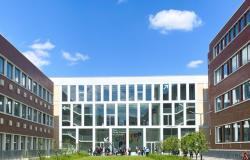While regional dynamics in the Maghreb and West Africa accelerate, the Algerian military regime is trapped by its own contradictions. Algiers’ repeated diplomatic failures, tested by a rigid obsession against Morocco, put it at odds with international political ethics.
Instead of focusing on internal challenges of economic and social development, Algiers devotes a large part of its energy to opposing projects carried out by the Kingdom. He is forced to watch helplessly as major economic and geopolitical initiatives reshape the region without his involvement.
The anti-Moroccan obsession: an ineffective driving force
This systematically anti-Moroccan posture has resulted in repeated attempts to interfere in bilateral relations between Rabat and its regional partners, in particular with Mauritania.
Read also | Algeria under Tebboune: a country at war with itself?
The recent recall of the Algerian ambassador to Nouakchott, Mohamed Benattou, is a striking illustration of this. Known for his virulent attacks on Morocco, Benattou was replaced by a charge d’affaires, a symbolic demotion that reflects the failure of Algerian attempts to influence Mauritanian politics in favor of its positions. Despite initiatives such as the construction of the Tindouf-Zouerate road or advantageous trade agreements for Mauritania, Algiers has not succeeded in diverting Nouakchott from its strategic relationship with Rabat.
Mauritania: a strategic partner for Morocco
At the heart of these rivalries is Mauritania, which strives to maintain calculated neutrality between its two Maghreb neighbors. However, the economic facts are clear: Morocco occupies a preeminent position as the leading African investor in Mauritania. With commitments in strategic sectors such as fishing, energy, and infrastructure, the Kingdom is a key economic partner for Nouakchott.
Read also | France describes the Algerian regime as “fantastic”
The Nigeria-Morocco gas pipeline project, which includes segments crossing Mauritania, illustrates this strategic cooperation. Unlike the Algerian approach, which attempts to use economic levers to influence Nouakchott, Morocco is proposing concrete initiatives that directly benefit both parties. Mauritanian President Mohamed Ould Ghazouani, by rejecting pressure from Algiers, demonstrated that his country would not sacrifice its relations with Rabat for the benefit of a strictly ideological agenda.
The Morocco-Emirates-Mauritania meeting: a turning point
The recent meeting between HM King Mohammed VI, the Emir of the United Arab Emirates Mohammed Ben Zayed, and the Mauritanian President, Mohamed Ould Ghazouani marked a milestone in regional relations. Although little information has been made public, this meeting is clearly part of a strategic vision carried by Morocco to strengthen economic and political ties in the region.
Read also | #Manich_radi: the hashtag that terrorizes the Algiers regime
The Atlantic Initiative, an ambitious project aimed at transforming the Atlantic coast into an economic axis linking Africa, Europe and the Americas, is at the heart of this dynamic. The involvement of the United Arab Emirates as a donor adds an additional dimension, positioning Morocco as an essential regional hub. This strategy, inclusive and forward-looking, contrasts with the Algerian approach, often perceived as reactive and obstructionist.
As a result of its rigid diplomacy, Algiers isolates itself
By multiplying initiatives to exclude Morocco from regional dynamics, Algiers has only accentuated its own isolation. The failure of an attempt to create a restricted Maghreb framework associating Tunisia and Libya, and excluding Morocco, illustrates Algiers’ loss of influence even among its traditional partners. At the same time, the pressures exerted on Mauritania to adopt an anti-Moroccan posture were met with a categorical refusal.
Read also | The Algerian regime basely attacks Boualem Sansal
The recent meeting in Casablanca between HM King Mohammed VI and the Mauritanian president underlined the solidity of the Moroccan-Mauritanian partnership. This rapprochement, centered on strategic projects such as the Nigeria-Morocco gas pipeline and the Atlantic Initiative, highlights the progressive marginalization of Algeria in regional initiatives. By insisting on a diplomacy of rejection, Algiers condemns itself to the role of passive spectator in a region undergoing rapid transformation.
A diplomacy guided by an ideology, moreover outdated
The reactive and rigid attitude of the Algerian military regime seriously harms its credibility and effectiveness. While Morocco continues to establish itself as a major regional and continental player, capitalizing on its proactive diplomacy and strategic partnerships, Algeria is locked into a logic of blockage and protest. This posture, based on historical rivalries and an outdated vision of regional relations, is proving increasingly ineffective.
Read also | A former Algerian minister calls on the military to abandon their policy on the Moroccan Sahara [Vidéo]
Algeria’s inability to adapt to current realities illustrates a regime overwhelmed by the transformations underway. By persisting on this path, Algiers risks excluding itself from the economic and political dynamics of the region. The next few years will be crucial to determine whether the Algerian regime will be able to review its priorities and actively participate in regional construction, or whether it will continue to isolate itself to the detriment of the interests of Algerians.





